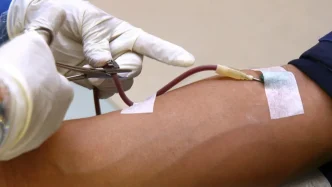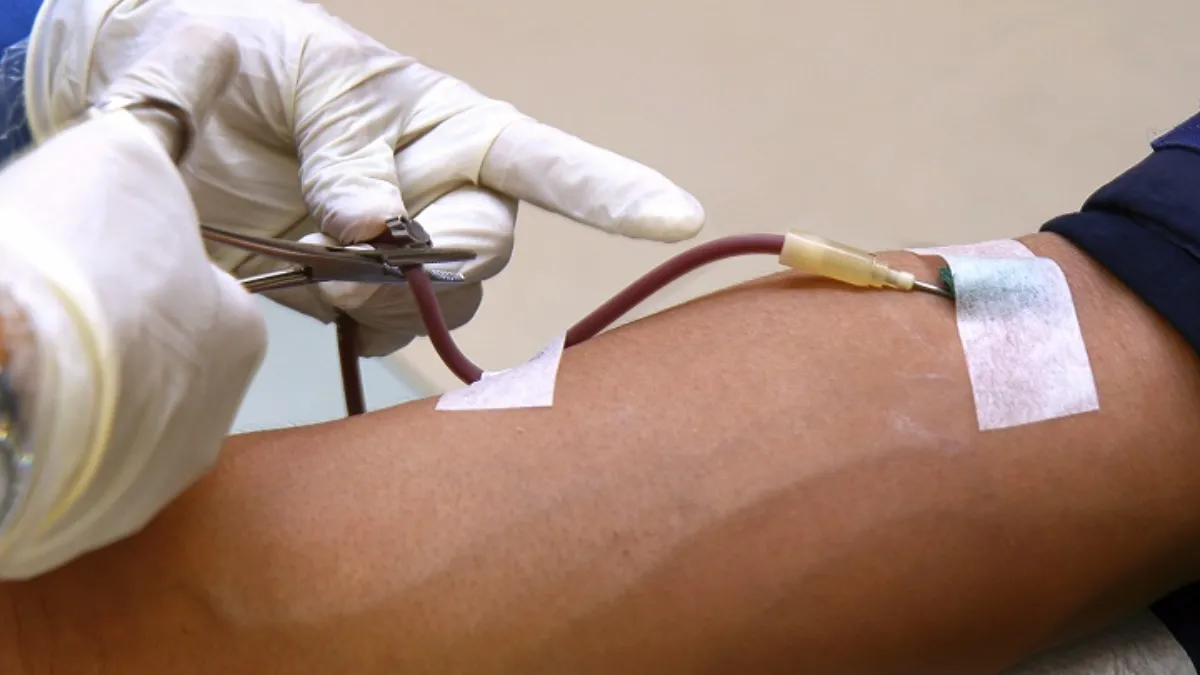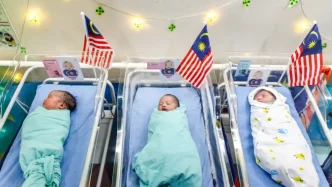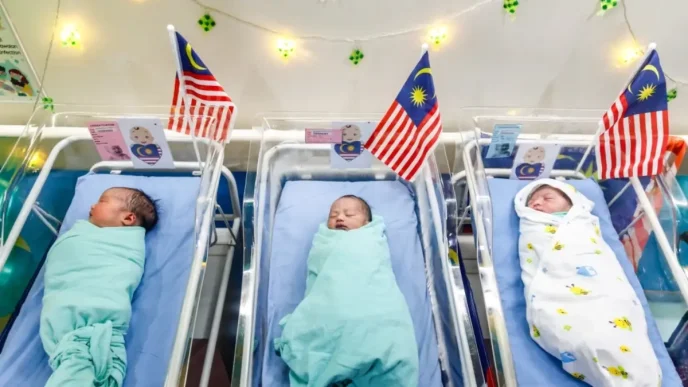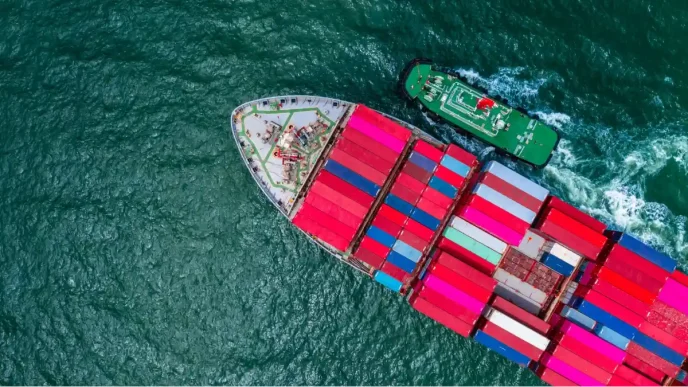Singapore will raise the age limit for first-time blood donors from 60 to 65 starting January 1, 2026, Health Minister Ong Ye Kung announced on June 28, 2025, in a bid to bolster the nation’s blood supply amid growing demand and a shrinking donor pool. The policy shift, driven by data showing lower adverse reactions among older first-time donors, aligns Singapore with global peers like Hong Kong and the United Kingdom, while addressing structural challenges in maintaining a stable blood stockpile critical for surgeries, cancer treatments, and emergency care.
A Response to Ageing Demographics and Rising Demand
The decision to ease the age restriction for first-time blood donors reflects Singapore’s evolving demographic realities. Speaking at a World Blood Donor Day event at Marina Bay Sands, Health Minister Ong Ye Kung highlighted the dual pressures of an ageing population and declining donor numbers. “An ageing population is driving up demand for blood products, while the pool of eligible donors is shrinking,” he said. Local data indicates that adverse reactions to blood donation decrease with age among first-time donors up to 60, prompting authorities to extend the eligibility threshold. “There is no reason to believe that once you cross 60 years old, suddenly the adverse reaction prevalence rate is going to shoot up,” Ong noted.
Singapore’s blood supply faces significant strain. In 2024, approximately 18,000 new donors contributed to the national blood bank, down from over 20,000 in 2013. Meanwhile, demand for blood transfusions has surged, with more than 35,000 patients requiring transfusions in 2023 for procedures ranging from complex surgeries to treatments for cancer and childbirth complications. Each donation can save up to three lives, but shortages threaten to delay critical medical interventions. Ong warned that low blood stocks could lead to postponed surgeries and compromised patient outcomes, underscoring the urgency of expanding the donor base.
Aligning with Global Standards
The new policy brings Singapore in line with several advanced healthcare systems, including Hong Kong, Taiwan, Ireland, the Netherlands, South Korea, and the United Kingdom, where first-time donors can contribute up to age 65 or beyond, provided they meet health criteria. Currently, Singapore allows repeat donors to continue giving blood until age 65, or even older if they remain healthy and have donated recently. Extending the same age limit to first-time donors is expected to attract healthy older individuals who may not have donated earlier in life but are now willing and able to contribute.
The Health Sciences Authority (HSA), which oversees Singapore’s blood donation program, will implement the change from January 2026. The move is part of broader efforts to make donation more accessible and reduce barriers for willing participants. Ong emphasized the importance of convenience, noting that authorities are exploring ways to streamline the donation process and minimize rejections of potential donors due to overly restrictive criteria.
Navigating Seasonal and Structural Challenges
Singapore’s blood supply is particularly vulnerable to seasonal fluctuations. Donor numbers typically drop during festive periods, school holidays, and long weekends when many residents travel abroad. In early 2023, stocks of Group O blood—a universal donor type critical for emergencies—fell to critical levels, equivalent to less than six days’ supply. A personal appeal by Ong at the time led to a remarkable response, with blood stocks increasing by nearly 2.3 times within a week. “This experience showed how people are willing to step forward,” he said, signaling public support for donation drives when the need is communicated effectively.
However, structural challenges persist. Singapore’s ageing population not only increases demand for blood products but also reduces the proportion of younger, eligible donors. As life expectancy rises and older citizens remain healthier for longer, tapping into this demographic is a logical step. The revised age limit is expected to help stabilize the blood supply by expanding the pool of potential donors, particularly among those aged 60 to 65 who are in good health and eager to contribute to society.
Public Response and Future Implications
The announcement has sparked cautious optimism among healthcare professionals and community advocates. Dr. Lim Wei Ming, a hematologist at a Singapore public hospital, welcomed the change, noting that older adults are often eager to give back to their communities. “Many in their early 60s are fit, active, and motivated to help,” he said. However, he cautioned that rigorous health screenings must remain in place to ensure donor safety, particularly for first-time donors unfamiliar with the process.
Public sentiment, as reflected in posts on X, suggests broad support for the initiative, though some users expressed concerns about the health risks for older donors. One X user (@HealthSG2025) posted, “Great move to increase the donor pool, but will there be enough education to ensure older donors know what to expect?” The HSA has yet to release detailed plans for public awareness campaigns, but Ong’s remarks suggest a focus on simplifying the donation process and addressing such concerns.
Globally, blood donation policies vary, but Singapore’s adjustment aligns with a growing trend of rethinking age-based restrictions. In the United States, for instance, there is no upper age limit for blood donation, provided donors meet health requirements. Australia allows first-time donors up to age 70 in some cases, reflecting confidence in the safety of older donors when proper protocols are followed. Singapore’s cautious approach—extending the limit to 65 while maintaining strict health checks—balances the need for inclusivity with safety considerations.
Economic and Social Context
The policy change also carries economic implications. Blood shortages can disrupt healthcare delivery, leading to delays in elective surgeries and increased costs for hospitals managing limited supplies. By expanding the donor pool, Singapore aims to reduce these risks, ensuring a more resilient healthcare system. The cost of blood collection and processing, estimated at 2,500 Singapore Dollars (~US$1,850) per 1,000 units annually, could be offset by a larger, more consistent donor base, potentially reducing reliance on emergency appeals.
Socially, the move reinforces Singapore’s emphasis on collective responsibility. Ong’s appeal in 2023 demonstrated the public’s willingness to rally during crises, and the new policy aims to sustain that momentum. Community organizations, such as the Singapore Red Cross, are expected to play a key role in mobilizing older donors, with plans for targeted outreach in community centers and senior activity hubs.
Looking Ahead
As Singapore prepares to implement the new age limit, questions remain about its long-term impact on the blood supply. Will the policy significantly increase donor numbers, or will seasonal shortages persist? The HSA’s focus on accessibility and public education will be critical to its success. For now, the change signals a pragmatic step toward addressing a pressing public health challenge, leveraging the vitality of Singapore’s ageing population to save lives. As Ong noted, “Each blood donation saves up to three lives.” With this policy, more Singaporeans will have the opportunity to make that difference.

